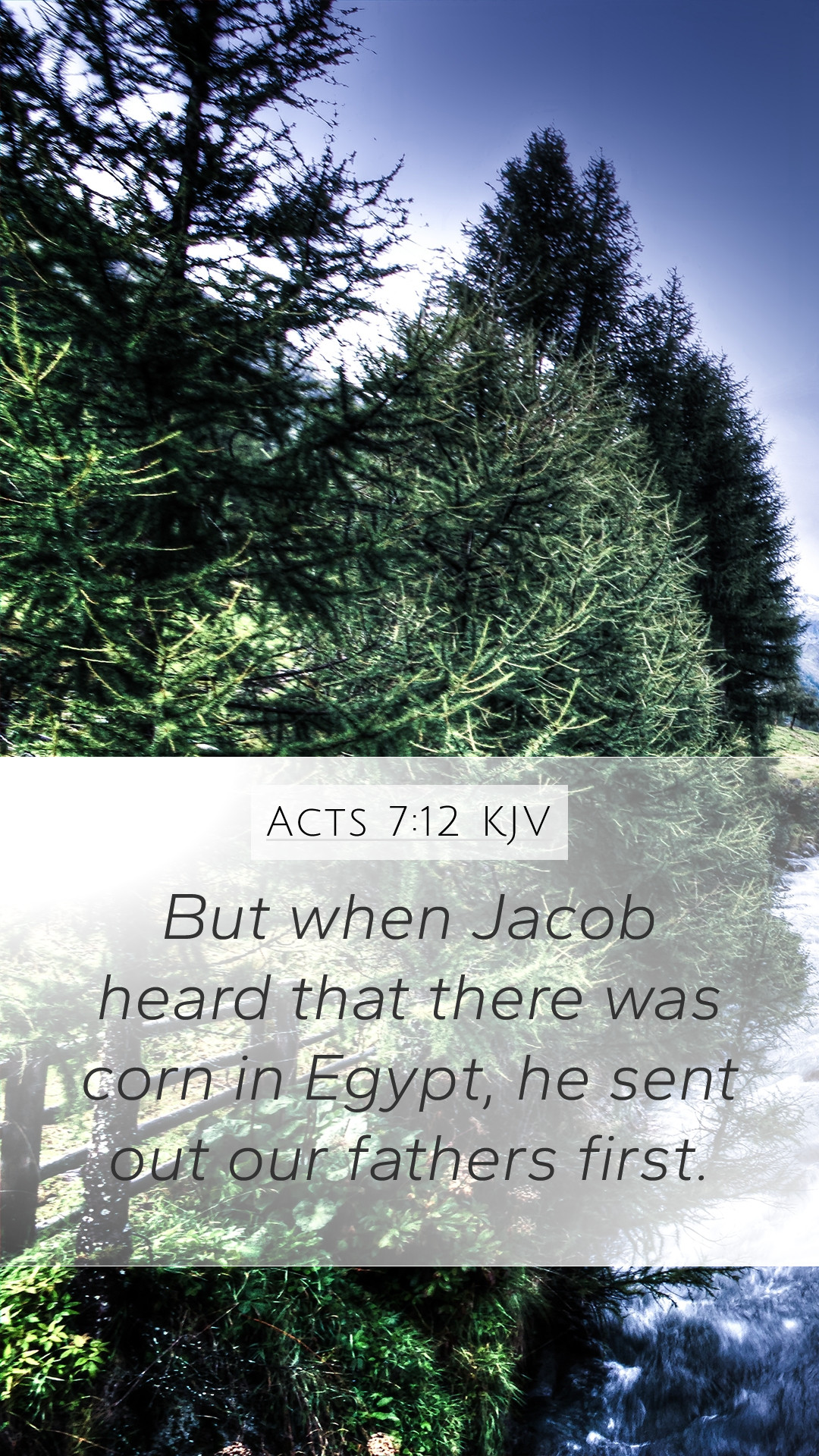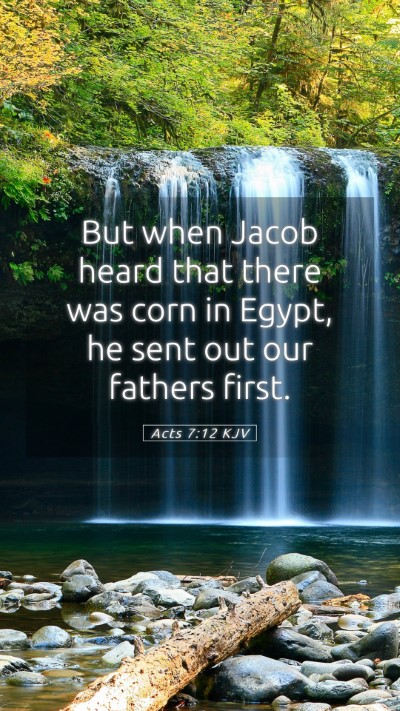Understanding Acts 7:12
Acts 7:12 states: "But when Jacob heard that there was corn in Egypt, he sent out our fathers first." This verse is part of Stephen’s speech to the Sanhedrin, recounting the history of Israel. It highlights the moment when Jacob, facing famine in Canaan, sends his sons to Egypt in search of provisions, setting in motion events that would lead to the Israelites becoming a great nation in Egypt.
Verse Meaning and Significance
The essence of this verse is marked by its historical significance. It portrays themes of necessity, provision, and God’s overarching plan for His people. As noted in historical context, Jacob’s decision was crucial during a time of dire need, which illustrates human dependence on God’s provisions.
Bible Verse Interpretation
-
Matthew Henry: Henry emphasizes the importance of Jacob’s actions as faith-driven. He notes that Jacob’s response to the famine reflects both a physical and spiritual hunger that leads to God's divine intervention.
-
Albert Barnes: Barnes points out that this event signifies the beginning of a significant transition for Israel. He suggests that this was not merely a survival tactic but an act that fulfilled God’s promises to Abraham regarding the future of his descendants.
-
Adam Clarke: Clarke focuses on the broader implications of God's providence and timing. He assesses how Jacob's sending of his sons symbolizes a deeper reliance on God's plans, where humans participate in God’s narrative.
Biblical Exegesis of Acts 7:12
This verse illustrates the complex interplay between human choices and divine orchestration. Jacob’s sending of his sons signifies a turning point where hope emerges from desperation. It serves to remind believers of the continuous thread of God’s provision throughout history.
Broader Contextual Insights
In Acts 7, Stephen recounts the history of Israel, emphasizing the recurring themes of rejection and deliverance. Acts 7:12 should be seen in light of the preceding verses which demonstrate God’s provision during critical times.
Relatable Cross References
- Genesis 42:1-3 - Jacob’s decision to send his sons to Egypt for grain.
- Genesis 37:28 - The sold Joseph who later becomes the key figure in Egypt's provision.
- Genesis 50:20 - Joseph’s reflection on God using his brothers’ actions for good.
Applying the Verse Today
For modern believers, this verse offers numerous lessons in Bible study insights:
- Trust in God’s provision: Just as Jacob relied on God in times of famine, believers today are encouraged to trust in God's provision during their own challenges.
- Human action in divine plans: The necessity of taking action while depending on God's guidance is a significant takeaway from this narrative.
- Historical awareness: Understanding the situational context of biblical events enriches one’s Bible study experience.
Conclusion: The Lesson of Acts 7:12
Acts 7:12 serves not only as a historical account but also as a profound reminder of reliance on God amid troubles. This Bible verse commentary presents a layered understanding—integrating narrative, theology, and practical application. For anyone looking to grasp meaning of Bible verses, especially regarding provisions and historical trajectories in God's plan, this verse is pivotal in providing clarity.
Further Resources for Bible Study
For deeper understanding and exploration of similar texts:
- Bible study guides: Focused materials that help delve deeper into scripture.
- Online Bible study: Resources available to enhance understanding through community interaction.
- Bible study tools: Apps and websites that provide commentaries, cross-references, and study aids.


